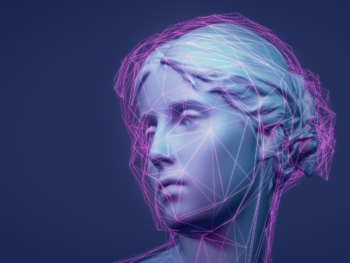After an 11-day High Court trial in London, Ed Sheeran has emerged victorious in the face of allegations that his 2017 hit Shape of You copied another artist’s song.
The dispute
The dispute arose when grime artist Sami Chokri (who performs under the name Sami Switch) notified the Performing Rights Society Limited (“PRS”) that he should be credited as the songwriter of Shape of You. This caused the PRS to suspend all payments to Sheeran and his co-authors in respect of the public performance / broadcast of the song. In response, Sheeran and his co-authors raised a court action seeking declarations that they had not infringed copyright. Sami Switch then issued a counterclaim for copyright infringement.
The counterclaim for copyright infringement was said to relate to an eight-bar post-chorus section of Shape of You, in which the phrase “Oh I” is sung, three times, to the tune of the first four notes of the rising minor pentatonic scale (that is, a scale based on five notes) commencing on C#. The legal team for Sami Switch argued that this was a “hook”, commonly understood to refer to the part of a song that stands out as catchy, memorable and keeps recurring, and that Sheeran and his co-authors had lifted the hook from his 2015 song Oh Why. Sheeran’s team, on the other hand, argued that the pattern is basic, minor and entirely commonplace, with Sheeran citing (and apparently singing during the course of his evidence!) Nina Simone’s Feeling Good and Blackstreet’s No Diggity to illustrate the point.
Fundamentally, the issue at the heart of the case was copying. Without establishing copying, Sami Switch’s case could not succeed. Sami Switch’s case centred on the allegation that Sheeran and his co-authors had access to Oh Why and as a result, reproduced a substantial part of the hook when writing Shape of You.
At the trial, it emerged that the allegations of copyright infringement were directed only against Ed Sheeran who, it was alleged, deliberately and consciously copied the hook or, alternatively, did so subconsciously. Ed Sheeran’s position, on the contrary, was that he wrote Shape of You from scratch in a couple of hours in October 2016. Nevertheless, had Sami Switch been successful in the counterclaim, the consequences would have impacted not only Ed Sheeran but also his co-authors, as owners of the copyright.
The legal position
Copyright subsists, among other things, in original musical works, which are defined in the Copyright, Designs and Patents Act 1988 (“the Act”) as works “consisting of music, exclusive of any words or action intended to be sung, spoken or performed with the music”. Such copyright may be infringed if, among other things, it is copied, which per Section 17(2) of the Act means “reproducing the work in any material form”.
To amount to an infringement, however, then per Section 16(3)a of the Act, the copying must be either of the original work or a “substantial part” of it which, as the judge in this case noted, is a qualitative not quantitative question, with the legal test being whether the part in question contains elements which are the expression of the intellectual creation of the author of the original work. Accordingly, infringement requires there to have been actual copying, which entails that the alleged infringer not only had access to the original work, but actually saw or heard it.
How would Sami Switch have proved this? The answer is, not without difficulty. So far as conscious copying is concerned, his solicitors argued that there is sufficient similarity between the works, clear evidence of access and other indicia of copying that the evidential burden should shift to Ed Sheeran (to prove that he did not have access to Oh Why prior to writing Shape of You).
For subconscious copying, the position is not so clear cut. For the argument to have succeeded, the court would need to have been satisfied that Sheeran was familiar with Sami Switch’s work and that there was a link between Oh Why and Shape of You. In any case where someone is alleging subconscious copying, this is a question that must be determined on the basis of the available evidence, which is very rarely direct and typically relies on inferences from other evidence. In this case, evidence was offered from a number of music industry professionals who were involved in recording Shape of You and from others through whom it was said that Ed Sheeran might have accessed Oh Why.
Evidence was also presented from expert musicologists, who collated examples of the various elements used, across the world of music, in Oh Why and Shape of You. The experts agreed that there were similarities between the songs. However, the experts also highlighted some material differences between the two. In particular, it was explained that the hook as used in Oh Why was in what was described as a ‘slow, dark, questioning mood’, whereas in Shape of You, the phrase was ‘faster, brighter and more upbeat’, in keeping with the song.
The decision
After 11 days of evidence from multiple witnesses, the court determined that Sheeran had “neither deliberately nor subconsciously copied” Sami Switch’s song. Whilst it was accepted, following the input from the expert musicologists, that there were similarities between the songs, the court also determined that there were also significant differences (in particular, the court was persuaded that the hook in each song has an entirely different application, with the overall mood of each song being completely different).
Despite the efforts from Sami Switch’s legal team to demonstrate the various channels through which Ed Sheeran could have heard Oh Why, the court ultimately determined that Ed Sheeran had not heard Oh Why and, moreover, that he did not deliberately or subconsciously copy the “Oh I” phrase, which is not original.
Accordingly, the court decided that copyright infringement had not occurred, dismissing Sami Switch’s counterclaim and granting the declarations sought by Ed Sheeran and his co-authors. The net effect of this is that the PRS will need to reinstate payment of the royalties to Sheeran and his co-authors.
Following publication of the court’s decision, Ed Sheeran issued a statement in which he noted that for songwriters, there is only a small selection of chords and 12 notes to choose from when writing a melody and the accompanying music in a song – as such, coincidences are bound to happen if 60,000 songs are being released a day on Spotify.
Sheeran also expressed concern that the increasing claim culture within the music industry is stifling the culture of creativity in which musicians and other artists are entitled to work. He also condemned the fact that the PRS is entitled to suspend royalties following receipt of a supportive musicologist report submitted by someone alleging copyright infringement. This, he says, creates a culture where the use of musicologists can be used as a threat and is something on which he has invited discussion with the PRS and other such bodies. It remains to be seen whether these bodies will engage in such discussions and if so, what will be the outcome.
Where does this take us?
The court’s decision in the Sheeran case may act as a salutary tale for musicians (or indeed other artists) attempting to allege copyright infringement.
Whilst each case turns on its own facts, primarily the decision serves to underline the need to proceed with caution when making such allegations, which are notoriously difficult and indeed expensive to prove. Legal advice should therefore always be taken before making allegations of copyright infringement.
Lauren McFarlane is a Senior Solicitor in the BTO BeCreative team which specialises in providing advice to individuals and organisations in the arts and entertainment industry and on protecting your commercial interests. If you have any questions, please do not hesitate to contact us. prm@bto.co.uk lyr@bto.co.uk @BTObecreative









 The publishing industry breathes a collective sigh of relief as UK Government maintains UK’s copyright exhaustion regime – for now at least
The publishing industry breathes a collective sigh of relief as UK Government maintains UK’s copyright exhaustion regime – for now at least
Leave a Reply